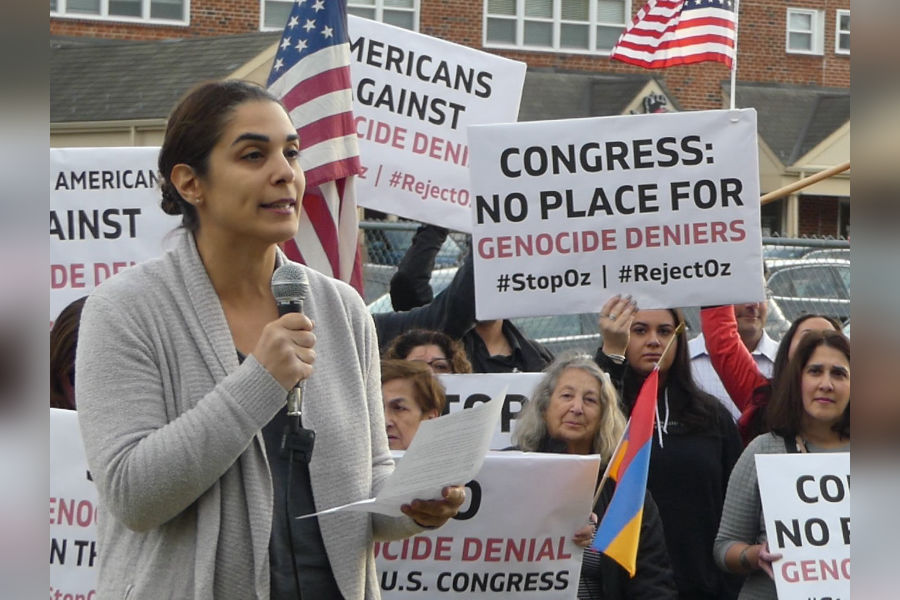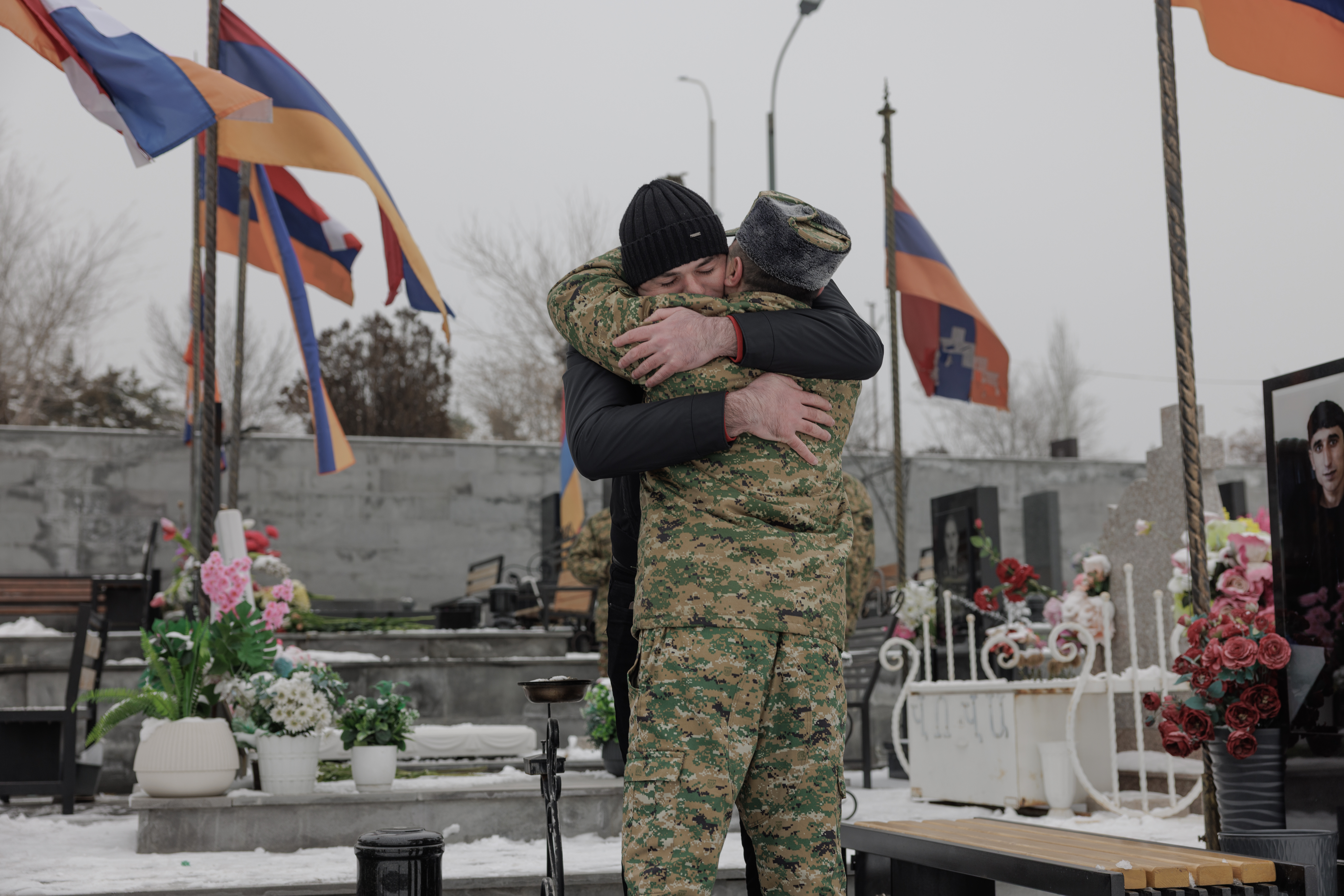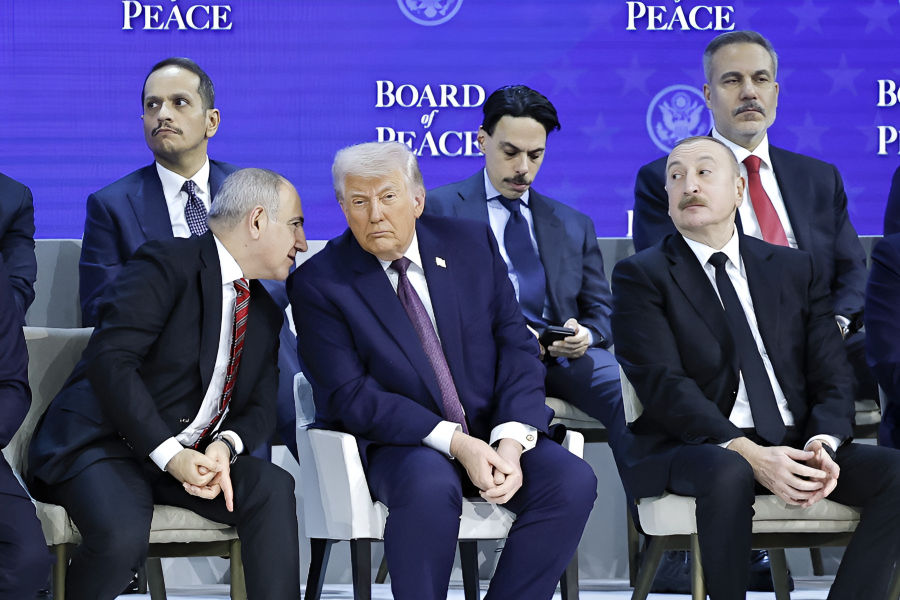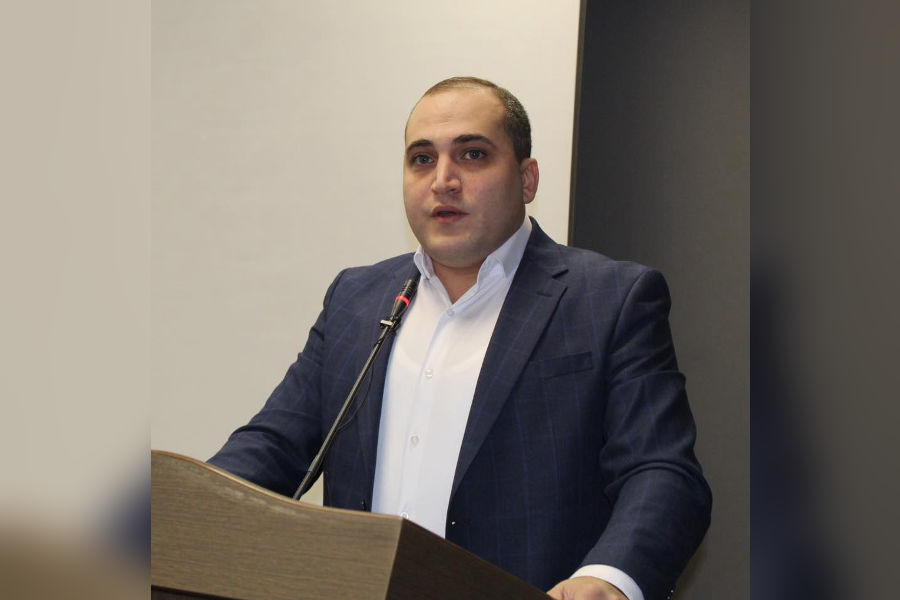

One week after the Azerbaijani Armed Forces invaded the Republic of Armenia on May 12, hundreds of Azerbaijani troops remain stationed in the sovereign territory of Armenia amid ongoing negotiations between the two countries and international demands for their immediate withdrawal.
On May 12, approximately 250 Azerbaijani soldiers advanced upon Lake Sev in the Syunik province and border sections of the Gegharkunik province. While the Office of the Prime Minister and the Armenian Ministry of Defense (MoD) uphold that no violent altercations had taken place along the border, Pashinyan has called the Azerbaijani military’s transgressions upon the international boundary of Armenia a “provocation” intended to ignite a “military conflict.” “Our position is that the situation must be resolved diplomatically and peacefully,” he asserted on Wednesday.
As of Wednesday morning, the situation along the borders remains unchanged, according to the MoD of Armenia. More units of the Armenian Armed Forces have been deployed in the past two days to prevent the Azerbaijani troops stationed in Syunik and Gegharkunik from carrying out any military operations.
Following failed negotiations in Syunik between Armenian, Azerbaijani and Russian officials last week and over the weekend, Armenian and Azerbaijani officials were expected to meet once again on May 19. “We definitely want to resolve the situation peacefully and are ready to hold discussions in a calm manner,” Deputy Prime Minister Tigran Avinyan told reporters during his visit to Goris on Friday. “Having said that, we must be prepared for possible bad developments and also be ready to defend our sovereign territory.” The Wednesday meeting did not take place, because Azerbaijani representatives did not appear for the talks. The MoD reiterated that, in case negotiations fail to bring about a peaceful settlement within a reasonable time frame, the Armenian Armed Forces reserve the right to resolve the problem by means of force.
An informal meeting between Collective Security Treaty Organization (CSTO) foreign ministers convened on Tuesday at the request of Armenia. The meeting follows a request from acting PM Nikol Pashinyan last week to the CSTO to invoke Article 2 of the Collective Security Treaty, which binds participating states to coordinate a collective response to threats to stability, territorial integrity and sovereignty of one of its members. The CSTO is a Russian-led military alliance that includes Belarus, Kazakhstan, Kyrgyzstan, Russia and Tajikistan. On Friday, Pashinyan also appealed to the incumbent Chairperson of the CSTO Collective Security Council and the President of Tajikistan Emomali Rahmon to activate the mechanism of emergency consultations and take measures against Azerbaijan’s actions.
During the Tuesday meeting, Russia offered to create a joint Armenian-Azerbaijani commission to delimit and demarcate the international boundary, in which Russia would participate as a mediator. “We are glad that the hot phase of the recent conflict is behind us,” said Russian Foreign Minister Sergei Lavrov, who has consistently understated the gravity of the crisis, advising on Monday that there is no need to “stir up emotions” over the dispute. “The main thing is that the countries have started work on delimitation and demarcation,” he expressed. While Pashinyan formally requested military support from Russia last week in line with their mutual defense treaties, Moscow has yet to comment publicly on the request.
Armenian Secretary of the Security Council Armen Grigoryan confirmed the Russian proposal during an interview with armenpress. He stressed that delimitation and demarcation cannot occur without the withdrawal of Azeri troops from sovereign Armenian territory.
Russian President Vladimir Putin spoke with his Azerbaijani counterpart Ilham Aliyev on Wednesday regarding Russian mediation of the demarcation of the international border. Both leaders “support settling the issue through political and diplomatic means alone,” according to the Kremlin. Putin also spoke with Pashinyan, and his office reported that they “agreed on the ways and methodology to resolve the situation,” without providing any further details on what that would entail.
Azerbaijan’s Ministry of Foreign Affairs (MoFA) insists that their violations of Armenia’s sovereign territory are “baseless.” On Thursday, the MoFA wrote that the border regions encroached on by Azerbaijani troops are “positions of our country.” It asserted that there has been “no state border between [Armenia and Azerbaijan]” since 1991. On Monday, the MoFA of Azerbaijan reiterated that it is “restoring its internationally recognized borders.” It advised Armenia to “accept the reality of the interstate border regime” and “work with the Azerbaijani side in a constructive way to solve the border issues through the bilateral channel.”
While the Azerbaijani military justified its troop movements on the basis of maps defining the international border, Pashinyan sustained that the maps of the 102nd Russian military base “unambiguously confirm [Armenian] statements about the coordinates of the border.” Pashinyan also rejected the possibility of a bilateral format to demarcate the international boundary since “Armenia and Azerbaijan have no relations with each other.”
During a phone call with the President of Kazakhstan on Monday, Azerbaijani President Ilham Aliyev declared that Armenia’s appeal to the CSTO is “nothing but an attempt to internationalize the issue” unnecessarily as there “have been no clashes on the border, the situation is stable, negotiations are underway.”
Under the November 9 trilateral ceasefire agreement ending the 2020 Artsakh War, Azerbaijan gained control over a number of territories, including the districts Zangelan, Qubatlu and Kelbajar, that had previously served as a buffer zone between Armenia and Artsakh. The Office of the Human Rights Defender of Armenia has consistently called for the creation of a commission to oversee a normalized and comprehensive border demarcation process that takes into account lived realities on the ground. The absence of such a process has created uncertainty in Armenia’s borderlands, where local residents encounter Azerbaijani soldiers, signposts and national flags along their pastures and roads.
The Office of the Human Rights Defender of Armenia has recorded incidents of threats of violence against residents of border villages by Azerbaijani soldiers in the past week. In communities including Verishen in Syunik and Upper Shorja, Vardenis and Ayrk in Gegharkunik, Azerbaijani troops prohibit shepherds from grazing in their local pastures. Ombudsman Arman Tatoyan, who has presented these findings to the Commissioner of Human Rights of the Council of Europe, reiterated the need for the establishment of a demilitarized security zone around Syunik and Gegharkunik to prevent further human rights violations against the residents of border communities.
Azerbaijan also exhibits a history of restricting access to natural resources for the Armenian population and staging troop movements in order to gain control over such resources, especially water. For instance, in February Tatoyan reported that the Azerbaijani military deliberately changed the course of the Zvaraget tributary from the Meghri River, which provides drinking and irrigation water to the town of Meghri and nearby villages in Syunik, to Nakhichevan, through special engineering equipment, compromising access to water for local Armenian residents. According to Tatoyan, access to water reserves has already been threatened by the recent Azerbaijani invasion.
During a government meeting on Wednesday, Pashinyan asserted that Azerbaijan is attempting to disrupt the implementation of the November 9 agreement and the January 11 agreement through its “destructive” actions. The January 11 trilateral agreement between Armenia, Azerbaijan and Russia is meant to accomplish the ninth point of the ceasefire agreement which states that all regional economic and transport links will be opened to allow for the unimpeded movement of citizens, vehicles and goods between Azerbaijan and the Nakhichevan Autonomous Republic through Armenia. The statement also provides Armenia with railway access to Iran through Nakhichevan and Russia through Azerbaijan.
Since January, Aliyev has drawn ire for threatening to use force to establish a corridor under Azerbaijani control through Syunik. On Wednesday, Pashinyan declared that while Armenia considers the opening of regional communications an “important economic priority,” Armenia “has never discussed and will not discuss anything under the logic of a ‘transport corridor’.”
Countries around the world have demanded the retreat of Azerbaijani troops from the sovereign territory of Armenia. On May 13, Pashinyan had a telephone conversation with French President Emmanuel Macron at the initiative of the latter. Macron shared that he is considering taking the issue to the United Nations Security Council and that with a UN mandate France is also prepared to provide military support to international efforts to resolve the issue if necessary. Following the conversation, Macron posted on Facebook, “Azerbaijan’s armed forces have invaded Armenian territory. They must be immediately withdrawn. To the Armenian people, I once again say: France stands in solidarity and will remain so.”
During a press briefing with the US Department of State on May 14, spokesperson Jaline Porter called the movement of Azerbaijani troops “irresponsible” and “unnecessarily provocative,” insisting on their immediate withdrawal. On Monday, US National Security Advisor Jake Sullivan held separate phone calls with Pashinyan and Aliyev. Sullivan told Pashinyan that he would present Aliyev with the demand to withdraw troops from Armenian territory. After their conversations, Sullivan wrote that both leaders are committed to the “peaceful resolution of border tensions through dialogue.”
The US State Department issued Level 4 Travel Advisories on May 18 warning Americans not to travel to Armenia or Azerbaijan and to “exercise caution on roads near Armenia’s border with Azerbaijan.” “Be aware that some portions of the road may cross international boundaries without notice,” the Travel Advisory reads. The notice further advises against travel to the Artsakh region and surrounding areas due to “recent hostilities.”
A senior Iranian lawmaker also asserted on Monday that Iran is unequivocal and resolute in its support for the territorial integrity of Armenia. “It would be unacceptable for us if they took away a part of Armenian territory and changed our borders. That is, if we had a new neighbor,” Mojtaba Zonnour, head of the Commission of National-Security and Foreign-Policy in the Iranian Parliament, told reporters. “The existing borders must be fully protected and Iran’s border with Armenia must be preserved.”








France is offering significant support on two levels, the UN Sec. Council and armaments, and Russia is keeping Pashinyan and all other mainstream Armenian politicians under daily threat if they dare to accept either France’s, or the US’s, security offers. The important question is *how* to move toward a westward orientation without what remains of Armenian-inhabited lands suffering more damage.
As long as Armenia is run by failed and weak leadership of Nicole Pashinyan’s government such behavior by Azerbaijan is expected.
Since the November 9 ceasefire there has been an absence of normality in our foreign relations and protection of our legal boundaries, not helped by the internal turmoil created by various self centred institutions of our homeland. The government seems to have given up on the security of our borders. The Azeris have taken advantage of this instability to their advantage. There were no boundary issues in this region until then. It is essential for Pashinyan to reinforce our borders and not rely on an non-existing support from our allies. These discussions will not reinstate our borders unless we show our willingness to back it up with action. Need to get into serious dialogue with Mr. Putin and Iran about our mutual interests and encourage Macron to back up his promises with positive actions. What is happening with the new home made missiles and drones?
Pashinyan is working on a new document agreement with Azerbaijan as we speak. What a dangerous useless incompetent traitor this loser of all Armenia is. Cant trust him as he lies constantly. He is a Levon Ter Petrossian lackey who was all to eager to give lands for some imaginary peace. NEEDS TO BE RID IMMEDIATELY.
A westward orientation in our politics is like going on a suicide mission. In the economic and political struggle for influence and supremacy between the West and the East all other countries inbetween are just pones involved in a big chess game. They get used for the political gains of the big players and discarded as collateral damage of war and left to suffer. Examples are numerous from Cuba to Ukraine. We should be very careful not to fall in the same trap. The ONLY possible help is from countries of SIMILAR interests, ie Russia and Iran. NEITHER the US nor France will EVER get involved in saving our skin and pick up a futile war miles away on our behalf for ideological or sympathy reasons. We should use the situation to our advantage and keep economic and cultural ties with the West while forming close political ties with Russia and iran.
End your fantasies and suicidal tendencies and finally come to sobering realization that Armenia has no viable alternative to Russia. Keep in mind that the south Caucasus is one of the most unforgiving places on earth. We as a people are not ready – and the past 3 years in particular have shown that we Armenians may not even be worthy – for independence. Armenia was resurrected by Russia two hundred years ago. For the past two hundred years Armenia has been preserved/maintained not by Armenians but by Russians. At the end of the day, this is the geopolitical formula everybody needs to learn: No Russia = no Armenia. It’s that simple. The quicker Armenia goes fully back into the Russian orbit, the quicker will the nightmare of the past 30 year’s end…
The only real solution is Armenian unity and intelligent moral leadership. Two things lacking. Lets be clear: Russia is terrible. They sat while Turkey and Azerbaijan were murdering Armenians. They have a security agreement supposedly with Armenian proper only yet are still doing nothing. They cant be trusted.. They would prefer Armenia without Armenians. It was Russia that gifted Nakichivan and Karabkh. It was Russia that welcomed the programs in Baku and Sumgait and watched while Armenians were burned and raped in the streets for wanting to be free.. If you want to run to someone it would actually be better to be friends with Turkey as crazy as that sounds.. Russia is no ally.
This is what happens when an armenian ‘leadership’ tries to move closer, politically, and culturally to the west. Like others have said, like it or not, Russia is the guarantor and overseer of this region. They will not tolerate countries within their sphere of influence to move closer to the west without consequences, whether it be Ukraine, Georgia, or Armenia. For Armenias survival it must be tied to the Russians and really should be based on three key points.
– Close political ties to
Russia to secure borders
– Build up military capabilities to counter the Azeri-tatars
– Take care of the people by a fair taxation system and reducing/eliminating corruption
the first point is the hard truth. We cannot maintain the borders without Russia. Even with updated weapons and a well trained military we cannot hold off the barbaric turkic hordes of turkey and the tartars, cause that’s what they still are to this day, albeit with a modern army. Armenia just does not have the manpower. That was lost during the 1915 genocide, when 1.5 million armenians were slaughtered. We otherwise would’ve been a 30-40 million strong country able to stand more on its own. Our fate is ties to the Russians, the west has proved time and time again that they cannot or will not help us. As long as Russia and the west are adversaries, we have to stay on Russia’s side.
the 2nd and 3rd PM’s were able to survive by maintaining the strong ties with the Russians (first key point, but not the 2nd and 3rd). This incompetent PM cannot even maintain the first, that’s why were are in the situation we are in. We need a new PM to secure the first key point, the 2nd and 3rd keys can be achieved also with competent leadership, but we can’t have them without a strong Russian alliance and secure borders first.